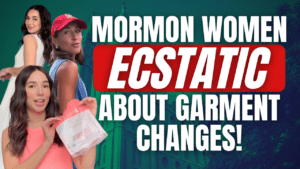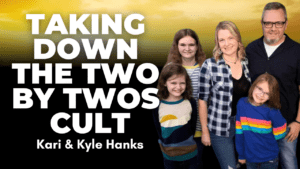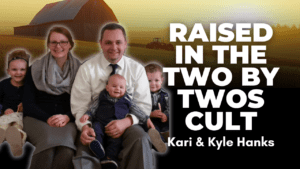In this episode, Martha Sontagg Bradley, author of Pedestals and Podiums: Utah Women, Religious Authority, and Equal Rights — discusses her research into the LDS church’s opposition to the Equal Rights Amendment. Most LDS historians and feminists credit this amazing series of events as the major impetus for the Mormon feminist activism that emerged in the 1980s and early 1990s.
This presentation was first delivered during the 2005 Northwest Sunstone Symposium in Molly Bennion’s home–and we hope you enjoy Martha’s version of the story.
Also, if you enjoy this presentation, please check out Sunstone’s MP3 collection for more great presentations on Mormonism.
(Please note that while the audio is of poor quality during the first 2 minutes of Martha’s speech–her introduction–the quality improves dramatically thereafter).
Also, thanks to Skye Pixton and Clayton Pixton, as always, for providing the music to this episode.
Mormon Stories Thanks Our Generous Donors!
Our Platforms:
Social Media:
Contact us:
MormonStories@gmail.com
PO Box 171085, Salt Lake City, UT 84117





11 Responses
I kept waiting for the sound quality to get better. Any way you could print a transcript of the questions at the end? I couldn’t hear the voices at all. :(
The talk itself was fascinating, though. It broke my heart at the time that my countrymen and women, and breaks it all over again now that my brothers and sisters were against equal rights under the law. I think we still do need it in the constitution, a fundamental article that says men and women are legally equal. I can’t believe anyone was or would be against that, any more than I can believe anyone thinks it’s permissible for a human being to be enslaved.
With all due respect, talk about beating a dead horse! Why are we revisiting such a useless topic when it has already been well documented and discuseed ad infinitem? I think it would great if Mormon stories addressed how attitudes and opportunities have changed for women in the church.
Michael,
I totally understand that for you (and several others) this is a dead horse. Unfortunately, for many, this story is not known. I didn’t learn of it myself until a few years back.
I’m just trying to be somewhat thorough in hitting on the main events in the history.
By the way, if you know any sharp women who are interested in discussing Mormonism and women today — I’m all ears.
John,
I will be listening to your discussions with Dr. Claudia Bushman this afternoon. I hope that will be as interesting as the Richard Bushman one was. Keep up with the good stories.
Michael
This is not a dead horse. As a woman and as an ex-Mormon this information is very important. I had no idea that the Church first supported the ERA and later did not.
I think the question is why was there such a radical change? What were/are the leaders of the Church afraid of if Women have equal rights?
I want to thank John for making this issue known. If you know so much about it Michael perhaps you can help change the problem. It still very much exists in and out of the Church.
Carolyn
There can be a reasoned, legitimate disagreement regarding the necessity and outcomes (both legal and societal) of the ERA as presented for ratification. Sadly, most of those get hand-waved away with statements such as “who could be against equal rights?” or “I almost cried when I saw I was voting against child-care!” or “what are they afraid of?” or other such rhetoric. The arguments for and against it have come up every time it’s introduced, and they should be studied and considered, not just assumed.
Everyone, of course, “wants equality,” but not everyone realizes the legal and societal ramifications of a *very* broadly written amendment.
Nate said: Everyone, of course, “wants equality,”
Yes, this is a burden I have to carry, I’m afraid.
It seems to me that there has been considerable progress made in recognizing the ability and contribution of women both in and out of the Church. In fact, I would say that in some areas, women have become more “equal” than men. I remember a period of time at work that women where women hired for jobs simply because of that fact and not for reasons of superior qualifications. All in the spirit of “leveling the playing field.”
I think the Church affords women a significant opportunity for leadership and positive contribution without having the Priesthood. I know that is not a popular view among some, but it has been my experience. The problems have tended to arise with indiviuals and not the Church as a whole.
Oh, I forgot to add and “all without an ERA.”
You forgot to add “but it has been my experience AS A MAN.”
Of course, I think that is implied. But does that disqualify me from an opinion?